Mapien Promotion Announcement
July 2023
We’re excited to announce our newest Mapien promotions! We know people make the greatest impact on an organisation and our people are leaders in their field committed to delivering excellence and making a difference! Congratulations to our latest Mapien promotions!
Vanessa Moran | Senior Consultant
We’re very happy to announce Vanessa’s promotion to Senior Consultant.
A registered psychologist with a passion for using organisational psychology to deliver practical solutions, Vanessa has a genuine & inquisitive manner, and partners with clients to get the best possible outcomes. Congratulations Vanessa, we’re excited to see you continue to guide our leadership development programs into the future!

Stu Tweedale | Consultant
Congratulations Stu on your promotion to Consultant!
Stu combines his data driven and analytical style with a warm, approachable manner to improve workplace culture, employee commitment & engagement, and wellbeing for his clients. An amazing quiet achiever, Stu has excellent technical knowledge and skill and a genuine passion for consulting on organisational culture, wellbeing, and development.
Johanna Berry | Consultant
Johanna has also been promoted to Consultant! Well done Jo!
Johanna is a motivated, methodical, and pragmatic consultant with great practical experience and an excellent understanding of Industrial Relations and Employment law. She combines her strong attention to detail and time management capabilities, with excellent communication skills, to find the best possible people solutions for her clients.

Mapien's Strategic Performance Team
Mapien’s Strategic Performance team lead the business in supporting Mapiens at work, enhancing organisational performance, creating value and ensuring commercial growth, and elevating our brand.
We’re excited to share our new structure and congratulate our leaders, Celia, Chris and Faria on their new positions within the team!

Connect with us
Need prompt and practical advice? Please contact us and one of our Workplace Strategists will be in touch within 24 hours.
A brief update
From the 31st May 2023, the Australia – UK Free Trade Agreement (UKFTA) came into force.
The two important changes from an immigration perspective are:
1. Labour Market Testing (LMT)
The UK has now been added to the list of International Trade Obligation (ITO) exemptions available when sponsoring individuals on Subclass 482 visas (this excludes applications for a subclass 494 visa and those under a labour agreement).
This update is now in effect.
This means that if you have a candidate you wish to nominate for a Subclass 482 visa and they are a citizen or permanent resident of the UK, you will be exempted from the LMT requirements. That means you do not need to demonstrate that you have actively advertised for the role in Australia within the last four months, for a period of 28 days in three locations, one of which is mandatory – JobActive, to make a nomination application under the subclass 482 visa program.
2. Working Holiday visa
New arrangements were announced for UK passport holders applying for a working holiday visa.
- UK passport holders can apply from the 1st July 2023 for this visa if they are aged between 18 and 35 years of age. This age bracket has increased from 30 years of age previously;
- UK passport holders can apply from the 1st July 2024 for a further two working holiday visas without the need to complete any regional work requirements. Allowing UK passport holders to have a maximum stay of up to three years.
The LMT exemption for UK citizens and permanent residents is a welcomed change and will allow employers to move quickly and not wait 28 days for advertising, when making offers of employment to UK applicants.
Reminder: 1st of July 2023 carries additional important updates!
- TSMIT increase to $70,000 per annum;
- Fee increases to the visa lodgement fees;
- Some NZ Citizens will become eligible for Australian Citizenship – some updates were announced yesterday extending/backdating PR to some NZ citizens holding Subclass 444 visa for the purposes of applying for Citizenship after 1st July 2023. Specific dates apply and we can provide further information on this if you have a specific query.

Technical Issues with the ImmiAccount
The ImmiAccount is experiencing technical issues due to the high volume of traffic on the site. Many clients and people will be impacted by the TSMIT increase therefore creating increased traffic and issues accessing the platform to draft and lodge visas at present.
If you have an urgent matter that needs to be lodged, I suggest you get in touch with us to assist and make this a priority.
Connect with us
We look forward to hearing more changes throughout the year as the Government looks to reform the skilled migration program.
If you have any questions in relation to the above, please don’t hesitate to get in touch.
FWC Annual Wage Review Decision 2022-2023
The Fair Work Commission’s Expert Panel has awarded a 5.75% increase to the National Minimum Wage and the minimum wages in Modern Awards.
Accordingly, all Modern Award minimum weekly wages will be increased by 5.75% from the first full pay period commencing on or after 1 July 2023.
The Panel noted their decision to no longer align the National Minimum Wage with the C14 classification wage rate in Modern Awards, which has been applied since 1997 in practice, but is not a legislative requirement. This year, the rate will be aligned with the C13 classification wage rate.
The National Minimum Wage will be increased to $882.80 per week or $23.23 per hour. This change in alignment results in an actual increase of 8.6% to the National Minimum Wage.
What factors did the Panel consider?
The Panel advised that the current combination of economic circumstances presented a particular challenge to this year’s annual wage review, including low unemployment, falling real wages, high inflation and the expected sharp slowdown in economic growth next year.
In arriving at their decision, the Fair Work Commission confirmed that they considered the impact of the current high inflation rate and the subsequent declined in real wages amongst Modern Award covered employees. This is causing a decline in living standards, financial pressure on households and in some cases, an inability to meet their financial needs. This resulted in a higher increase than the 5.2% applied to the National Minimum Wage last year.
As a result of the Secure Jobs, Better Pay legislation that came into effect last year, the Panel were also required to give a greater emphasis to the impact of the wage increase on female employees and employees in less secure employment.
The Panel indicated that approximately 20.5% of employees in Australia are paid in accordance with Modern Award wages, with a further 0.7% paid the National Minimum Wage. Typically, these employees work part-time hours, are predominantly female and almost half are casuals and therefore fall within the ambit of the legislative changes.
The Panel noted their inability to satisfactorily address the lower wages paid in female dominated industries. However, noted that this was an ongoing focus of the Fair Work Commission that will form part of next year’s annual wage review.
A further factor that was considered by the Panel was the upcoming legislative increase to the superannuation employer contribution rate from 10.5% to 11% on 1 July 2023.
The Panel confirmed that consideration was given to the various submissions received from the Government and a range of various stakeholders, including peak councils, registered employer and employee organisations. The Australian Government proposed a CPI-matching wage increase to the National Minimum Wage and the C14 Award wage rate, an equivalent flat dollar wage increase to classifications up to the C10 Award wage rate, and a 4% increase to award rates at C10 and above. Additionally, the ACTU suggested a 7.0% increase.
Application of the Increase to the National Minimum Wage and Modern Awards
The increase applies to minimum wages for all employees, including junior employees, trainees and apprentices, employees with disability and to piece rates. Weekly wages will be rounded to the nearest 10 cents.
If an Enterprise Agreement applies to an employee and the employee would otherwise be covered by a Modern Award, then the employee’s base rate of pay under the Enterprise Agreement must not be less than the base rate of pay that would be payable to the employee under the Modern Award.
If an Enterprise Agreement applies to an employee and the employee is not covered by a Modern Award, then the employee’s base rate of pay under the Enterprise Agreement must not be less than the National Minimum Wage.
If no Enterprise Agreement or Modern Award applies to an employee, then the employee cannot be paid less than the National Minimum Wage.
Mapien Modern Award Supply Service
If you are currently a subscriber to the Mapien Modern Award Supply Service, the wage sheets for your applicable Modern Award will be updated in line with the increase to take effect from the first full pay period on or after the dates highlighted above. You will receive an email confirming when these are available via our online service.

Interested to learn more?
If you would like more information on the impact that the minimum wage increase might have to your organisation, please contact us here and a Mapien Workplace Strategist will be in touch within 24 hours.
The Fair Work Legislation Amendment (Secure Jobs, Better Pay) Act 2022 (Cth) has enhanced the power of the Fair Work Commission (‘FWC’) to resolve intractable bargaining disputes.
These changes will take effect on 6 June 2023.
This article will focus on single employer enterprise bargaining.
Intractable Bargaining Declaration
If bargaining for an enterprise agreement becomes prolonged and reaches a point where a resolution seems unlikely, a bargaining representative has the option to submit an application to the FWC to request an intractable bargaining declaration.
If such a declaration is made, the FWC may make a determination resolving the bargaining dispute. However, before making a declaration the FWC must be satisfied that:
- it has dealt with the dispute under section 240 of the FW Act (eg. conciliation of the bargaining dispute) and the applicant participated in the dispute resolution process;
- the parties have bargained for a minimum period of 9 months or at least 9 months have elapsed since the nominal expiry date of the previous enterprise agreement;
- there is no reasonable prospect of agreement being reached if the FWC does not make a declaration;
- taking into consideration the views of all the bargaining representatives for the enterprise agreement it is reasonable in all the circumstances to make the declaration.
If a declaration is made, the FWC will consider whether to provide the bargaining representatives with a further period to negotiate, to be known as a ‘post-declaration negotiation period’. During this period the FWC may provide assistance (such as conciliation) to the parties to reach agreement. If agreement still cannot be reached, the FWC may make an intractable bargaining workplace determination to resolve any outstanding matters. Such a determination is made by a Full Bench of the FWC and will likely involve a formal hearing where the parties are required to lead evidence and make submissions.
Practical Implications
The potential for the FWC to resolve intractable bargaining disputes is both an opportunity and a risk for employers.
The opportunity is the potential for employers who cannot reach agreement with employees to use the FWC to make a determination in relation to non-agreed items. Unions and employees will often refuse to negotiate on the removal of long established high employee value items. This might include no forced redundancy or requirements that rosters can only change with employee agreement. Employers may have better prospects of advocating before the FWC for the removal of these clauses.
The risk is that an employer may have an outcome imposed on them against their will. This may operate a just say “no” approach by an employer to bargaining.

Take home points
Employers should review their bargaining strategies in light of the FWC’s ability to determine an intractable bargaining dispute. Although the FWC’s power is discretionary, the fact that an application can be made by an employer may be a useful tool to encourage union parties to reach an agreed outcome.
Connect with us
If you would like to know more about enterprise bargaining, please contact us at hello@mapien.com.au and a Mapien Workplace Strategist will be in touch within 24 hours.
An essential last-minute guide for employers to comply with the recent IR legislation changes
In December 2022, the Federal Government announced that ‘Zombie’ Agreements would cease to operate from 6 December 2023.
As a result all employers operating under Zombie Agreements must ensure that all affected employees are advised about the changes impacting them as a result of the Zombie Agreement ceasing to take effect in December 2023.
Deadline alert
- 6 June 2023: The last date for employers to communicate these changes to their employees.
Is your agreement a 'Zombie'?
You may be operating under a ‘Zombie’ Agreement if:
- Your Agreement was made prior to 2009: or
- Your Agreement contains the words “Collective Agreement”, “Workplace Agreement” or “Transitional” in its title; or
- It references the Workplace Relations Act 1996, an Award dated prior to 2010, The Australian Industrial Relations Commission, The Fair Pay Commission or the Workplace Authority.
If any of these conditions apply, you need to act immediately.
The Fair Work Commission has published a list of Zombie Agreements on their website to assist employers in determining whether or not they have a Zombie Agreement that applies to them.

Consequences of non-compliance
Please note that failure to meet this notification requirement may result in the imposition of penalties and fines on the employer.
We're here to help
Navigating these legislative changes can be challenging. If you need assistance in drafting your communication to employees or would like to discuss your future options, our Mapien experts are here to help. We can provide you with advice tailored to your unique circumstances.
Don’t let your Zombie Agreement turn into a nightmare. Contact us today and a Mapien Workplace Strategist will be in touch swiftly to assist you.
Changes to BOOT for Enterprise Bargaining
The Fair Work Legislation Amendment (Secure Jobs, Better Pay) Act 2022 (Cth) has introduced a range of changes to the enterprise bargaining provisions of the Fair Work Act 2009 (Cth) (‘FW Act’). One of these changes relates to the operation of the Better off Overall Test (‘BOOT’). These changes will commence on 6 June 2023. This article will focus on the impact on single employer enterprise bargaining.
Better Off Overall Test
The changes are intended to simplify the operation of the BOOT while continuing to maintain appropriate employee protections.
These changes are as follows:
- clarify that the BOOT is a global assessment rather than a line-by-line comparison between the proposed enterprise agreement and the relevant modern award;
- require the FWC to only consider, patterns or kinds of work, or employment types that are reasonably foreseeable at the enterprise to which the enterprise agreement relates;
- while the FWC must undertake its own assessment of the BOOT, it must take into account the views of the parties and give primary consideration to any common view shared by unions and employers about whether the enterprise agreement passes the BOOT;
- allow the FWC to amend an enterprise agreement where necessary to address a concern that it does not satisfy the BOOT;
- allow the FWC to reassess an enterprise agreement against the BOOT at some later time if relevant circumstances were not properly considered during the approval process. This may entail amending the enterprise agreement including retrospectively if necessary to address a concern it does not satisfy the BOOT.
Approval Requirements
The previous pre-approval steps and genuine agreement requirements will be replaced by a broad genuine agreement requirement. Essentially the FWC will need to be satisfied that an enterprise agreement has been genuinely agreed to by the employees.
The changes:
- require the FWC to publish a ‘statement of principles’ providing guidance to employers about demonstrating that an enterprise agreement has been genuinely agreed. This will be used by the FWC to determine whether there has been genuine agreement by employees. On 12 May 2023, a full bench of the FWC published a ‘Fair Work (Statement of Principles on Genuine Agreement) Instrument 2023’ (‘Statement of Principles’) which will commence operation on 6 June 2023;
- require the FWC to be satisfied that the employees asked to approve the enterprise agreement had a sufficient interest in the terms and are sufficiently representative in that they are informed and genuinely understand the enterprise agreement being approved;
- retain the FWC’s power to disregard minor procedural or technical errors provided it is satisfied that employees are not likely to be disadvantaged.
These changes will apply to any enterprise agreement made (ie. approved by employee vote) on or after 6 June 2023.
Practical Implications
Employers must carefully consider the Statement of Principles published by the FWC. This provides important information to ensure employees have genuinely agreed to the making of an enterprise agreement.
Employers will have to ensure that the employees who voted for the enterprise agreement:
- have a sufficient stake in the terms of the enterprise agreement. For example, employees would not have a sufficient interest in the terms of the enterprise agreement if a small cohort of employees offered rates of pay higher than those contained in the enterprise agreement approved the agreement;
- are sufficiently representative having regard to the coverage of the proposed enterprise agreement. For example, employees engaged in one industry, occupation or classification may not be capable of genuinely agreeing to an enterprise agreement intended to cover employees across a substantially wider range of industries, occupations or classifications.

Take Home Points
Employers must be prepared for these changes to enterprise bargaining laws when developing and implementing a new enterprise agreement.
The BOOT is a fundamental part of the enterprise bargaining process that must be adhered to in order to gain approval from the FWC. The legislative changes may result in the FWC taking a more practical and pragmatic approach to the BOOT. This will provide an opportunity for employers to negotiate flexibilities which better meet their operational needs.
The changes to the approval requirements and the introduction of the broad genuine agreement test will allow the FWC to ignore minor defects and technical errors in the bargaining process. However, employers considering a strategy of negotiating an enterprise agreement with a small cohort of employees will need to be mindful of the new “sufficient interest” requirements.
Connect with us
If you would like to know more about enterprise bargaining, please contact us at hello@mapien.com.au and a Mapien Workplace Strategist will be in touch within 24 hours.
Upcoming changes to the Temporary Skilled Migration Income Threshold and 186 eligibility for Short Term (STSOL) visa holders.
While there will be multiple changes made to the skilled migration program prior to the end of 2023, one of the imminent confirmed changes relates to an increase in the minimum salary level for the Subclass 482 and 186 visas, effective from 1 July this year.
The Government has also confirmed that Subclass 482 visa holders in Australia who work in an occupation on the Short-Term Skilled Occupation List (STSOL) will become eligible to apply for a Subclass 186 Employer Nominated visa by the end of the year, subject to meeting all other eligibility requirements.
Our Frequently Asked Question (FAQs) provide some further clarification on both changes.
Increase in the Temporary Skilled Migration Income Threshold

Q | What does TSMIT stand for?
A |
TSMIT stands for Temporary Skilled Migration Income Threshold.
Q | What is the TSMIT increasing to and when?
A |
The TSMIT will increase to $70,000 base salary/guaranteed earnings per annum from the 1st July 2023. Employers will need to meet the new TSMIT of the annual market salary rate (AMSR), whichever is higher. Note that the TSMIT cannot include performance-based bonuses/commissions or any other monetary items which do not have a pre-agreed, guaranteed value.
Q | How does the TSMIT salary increase affect my employees?
A |
The TSMIT salary increase will impact your temporary sponsored employees in the following ways:
- If your employees are on existing temporary skilled visas and their current salary falls below the new TSMIT, there is no action required now however their salary would need to be able to meet this new level when it comes time for renewal of their TSS visas.
- It will affect the eligibility of employees to apply for a new TSS visa or employer sponsored permanent visa if their salary does not meet the new TSMIT threshold. If you are unable to pay this salary, then that sponsored employee will not be eligible for the TSS or employer sponsored PR visa.
Note that you would still need to ensure that any new salary aligns with the market rate for the occupation and there may be concerns raised by the Department in cases where a nomination references a salary of $70,000 however the external market rate indicates the usual salary in the broader Australian labour market would be less than this.
This may also be an issue for businesses governed by an enterprise agreement. The Government has indicated that there may be other options available for employers and occupations where the market salary rate is below $70,000, including potential development of more industry specific Labour Agreements and/or requesting a Company Specific Labour Agreement.
Q | When does the TSMIT salary increase come into effect?
A |
The TSMIT salary increase will take effect on and from 1 July 2023 and will apply to all new nomination applications lodged after that date.The TSMIT is also applicable to the Subclass 186 employer nominated permanent residence visa.
Q | Does the new TSMIT salary requirement apply to existing visa holders?
A |
The new TSMIT of $70,000 will apply to all new Subclass 482 and Subclass 186 nomination applications lodged on or after 1 July 2023. The Department has more recently confirmed that this new TSMIT figure will not be applied retrospectively to unfinalized nomination applications that have been lodged prior to 30 June 2023.
Employers need to remember also that the salary which is paid to a sponsored visa holder must also align with the salary provided to their Australian counterpart employees (that is, Australian employees performing the same role in the same location).
There is scope for a ‘usual range’ to apply to a position, where employers provide remuneration in line with the individual level of skills and experience held by each employee. Depending on the workforce composition however, there may be cases where an employer will need to consider an increase in the base salary for multiple employees, including Australian citizens and permanent residents, to ensure consistency. In these cases, employers may wish to consider renewing any relevant 482 applications, and submitting new nomination applications, ahead of 30 June in cases where they may need more time to consider the cost implications of any broader uplifts required. In some cases, this may require completion of Labour Market Testing, so these actions should be taken now.
STSOL visa holders: change in eligibility for the Subclass 186 visa

Q | When will this come into effect?
A |
The Department has confirmed that all STSOL visa holders will be able to apply for an employer nominated Subclass 186 permanent residence visa under the Temporary Residence Transition (TRT) stream by the end of 2023.
Q | What if my employee is on their second TSS visa and this is due to expire before then? Will they still need to go offshore?
A |
No, the Department has also confirmed that the current restrictions placed on STSOL visa holders will be temporarily removed. This means that STSOL visa holders can now apply for a third 482 visa without needing to depart the country.
Q | What about the age limit on these visas – will it increase?
A |
The Department has not yet indicated any changes to the current 45 year age limit although substantial lobbying continues to occur in relation to this, with a view that returning to an upper age limit of 50 would be beneficial for multiple reasons. We do not expect any announcements around this until later in the year.
Q | How long does my STSOL worker have to work in the position before they can apply for the 186?
A |
Under the TRT stream and current legislation, primary sponsored Subclass 482 visa holders must work for their same sponsoring employer for at least three years before a 186 application can be lodged. The Department has confirmed however that this qualifying period will also be reduced by the end of the year to only require two years of full-time employment.
We will continue to provide updates as they become available.
If you need help navigating the upcoming TSMIT changes or would like advice on eligibility for the Subclass 186 visa for your existing STSOL visa holders, please get in touch.
Respect@Work
The Respect@Work website provides guidance for employers on “good practice” for the delivery of sexual harassment training.
It highlights that training should be immersive and interactive and lead by instructors with expertise. Whilst e-learning is acknowledged as cost effective and logistically simple, it notes that it “may be of limited effect” in preventing workplace sexual harassment.
Two recent decisions of the Fair Work Commission (FWC) reinforce the proposition that “tick and flick” training on its own will not satisfy an employer’s obligation to educate its workforce about sexual harassment and discrimination (Adam Thompson v Ventia Australia Pty Ltd T/A Ventia [2023] FWC 904 and Martin Pelly v Ventia Australia Pty Ltd T/A Ventia [2023] FWC 907).
A brief overview of these cases is as follows:
- Mr Thompson and Mr Pelly were firefighters employed by Ventia Australia.
- They both made posts in a private Facebook group set up by one of the employees. The group name was “Sickos video sharing group”.
- 11 members of the Facebook group were current employees, three were former employees and three were unrelated to the workplace.
- The posts made on the group page ranged from pornography to racist memes and other sexist material not suitable for work.
- At least one pornographic post was made during working hours, but most of the material was posted outside working hours. This was material in the decision to reinstate one employee, but to uphold the termination of the other employee.
- The decisions consider the key issues of the seriousness of the material posted and the connection between private social media communications and the workplace.
The issue of whether the employees were adequately educated about the company’s social media policy was contested. While Ventia had a social media policy, the Commissioner was highly critical of Ventia’s training approach.
In the Thompson decision the Commissioner stated that “the training practices of the employer appear to be along the lines of self-taught, tick and flick approach – which is simply not appropriate and lacks the educational rigour and outcomes of face-to-face training”.
In the Pelly decision the Commissioner stated that “I have taken into account that the Applicant’s training regime is delivered via online learning which in many respects, in my view, does not deliver the same educational outcomes as face-to-face tuition, especially when the training module contains 100 slides”.

Employers are being sent a very clear message that you are unlikely to satisfy your duty to prevent sexual harassment if your only training methodology is “tick and flick”.
A more effective approach
When training sensitive material on topics such as sexual harassment, discrimination and bullying, Mapien has always been an advocate of interactive, face to face training led by an experienced facilitator and tailored to the specific workplace. If face to face sessions are not feasible, then live interactive online training is the next best option rather than pre-packaged, self-paced modules.
The advantages of this approach include:
- Face-to-face training encourages employees to engage with the training material and ask questions in real time.
This can help to clarify any confusing or ambiguous aspects of the training and ensure that all employees have a common understanding of the issues. The facilitator must have the expertise to handle “left-field” questions on these topics. - Tailored hypotheticals and/or case studies will reinforce the content learning.
Employees will apply theoretical concepts to realistic practical situations. - Employees can discuss the issues with their colleagues and share their own experiences and perspectives.
This can help to build empathy and understanding, as well as identify any potential areas of concern within the workplace. - The facilitator needs the experience and expertise to handle a group discussing sensitive issues.
Most organisations have a small percentage of employees who may challenge or debate the merit of these laws. This has the potential to upset or offend other employees. The facilitator needs experience and confidence to manage “that employee” in the room. - Tailored face-to-face training allows the facilitator to reinforce key messages for each client and ensures that employees understand their responsibilities and their own internal policies and procedures rather than generic information.
If you have been relying on self-paced online training modules to educate your staff about respectful workplaces, it is time to consider a more effective approach to protect you and your employees.
Connect with us
If you would like to know more, please contact us and one of our Workplace Strategists will be in touch within 24 hours.
Winston Churchill once said, “There never was a war in history easier to prevent by timely action than the one which has just desolated such great areas of the globe. It could have been prevented, in my belief, without the firing of a single shot.”
This quote is not only applicable to military conflicts, but also to the workplace.
As workplace consultants, we regularly see the consequences of leaders failing to take timely action, to address poor behaviour or performance, to initiate an investigation at the right time, or to identify and address the effects of psychosocial hazards early. It can lead to a toxic work culture, low morale, subpar business results, and even costly legal disputes. That is why it’s crucial for organisations to equip their leaders with the right tools and knowledge to lead well.
Take action
One of the most critical aspects of good leadership is taking immediate action on an issue in the workplace. In some cases, leaders may feel reluctant to confront their team members due to fear of conflict, uncertainty about what to say, or a desire to avoid offending someone. However, this hesitation often leads to the behaviour becoming worse and spreading to others.
Leaders must understand that poor behaviour should be addressed as soon as it is observed. This includes things such as tardiness, excessive absences, low productivity, poor quality work, rude or disrespectful behaviour, bullying or harassment and exclusion of people in the workplace. Failing to address these issues can create an atmosphere of acceptance, leading to a gradual decline in standards and the overall culture.
Furthermore, it is vital to recognise that taking immediate action benefits not only the organisation but also the employee exhibiting poor behaviour. By addressing the issue directly and professionally, leaders can provide valuable feedback, guidance, and support to help their team members improve their behaviour and performance.
The right tools
To equip leaders with the right tools and knowledge to address these situations, organisations should provide relevant training and resources. This can include training in such topics as communication skills, understanding how to deal with difficult conversations, conflict resolution, providing effective feedback, but can also be something as simple as coaching. These tools help leaders feel more confident and equipped to handle conflicts, promote collaboration, and maintain high standards of excellence in the workplace.

When conducting workplace investigations, there is almost always a point in history, in the lead up to the investigation, where it is clear that if a leader had dealt with the situation in an effective way, there would not be a need for a costly investigation. Mapien recognises this and offers a range of leadership development options to our clients. Whether you have frontline leaders struggling with the concept of ‘mate to manager’, graduates embarking on their career, or senior professional leaders who need coaching, the investment of time and money is always better spent before, as Mr Churchill puts it, “a single shot is fired”, as opposed to having to clean up the situation with a workplace investigation which has damaged your culture.
Connect with us
If you would like to know more, please contact us and one of our Workplace Strategists will be in touch within 24 hours.
Late last week Minister Clare O’Neil gave an address to the National Press Club, outlining the Government’s proposed changes to Australia’s skilled migration framework.
The Government has a big job ahead of them if it is to deliver all of the outlined reforms, and these changes are not going to happen overnight. There is still a lot of development and consultation to occur however the Minister did confirm a couple of firm changes, as noted below.
Confirmed changes from Minister O’Neil’s announcement
- There will be a permanent residency pathway available for all STSOL visa holders by the end of 2023; and
- From 1 July 2023 the Temporary Skilled Migration Income Threshold (TSMIT) will increase from $53,900 to $70,000 per annum. This salary threshold will apply to all new nominations lodged after that date and is the first increase to TSMIT since 2013.
The vision
Minister O’Neil advised that the Government’s proposed changes will represent a once in a decade overhaul of a migration system that is currently failing to deliver for Australia and its skilled migrants.
Minister O’Neil acknowledged that the current migration program is failing to prioritize the skilled migrants Australia needs. The proposed new framework is being designed to deliver a system that is easy to navigate, that delivers the right outcomes, and is one that aligns with Australia’s values of integrity, fairness and inclusion.

The four key elements of the proposed reforms are as follows:
1. Prioritising the people Australia needs to enhance our economic prosperity & security
- Creating a new three-tiered temporary migration framework, with potential removal/ relaxation of the Labour market testing criteria for high wage earners (salary for this group to be advised). There will be three streams: specialized highly skilled, mainstream skilled and essential skills
- Developing fast and simple pathways for the specialized highly skilled workers that Australia needs to drive innovation and build jobs for the future.
- Reforming the points test applied to the independent skilled visa framework, ensuring better outcomes across the program and better employment outcomes for this cohort.
2. Making it simple and efficient for employers and migrants
- Reducing complexity through delivery of a simplified program supported by facts and data – including an overall reduction in the number of visa subclasses.
- Addressing the visa backlog while making the system faster through investments in IT, data and people capabilities.
- Switching to monthly employer fees and charges for small business rather than making that large investment upfront (reference to when the SAF training levy will be collected).
- Establishing a formal role for Jobs and Skills Australia (JSA) and establishing an avenue for tripartite feedback between JSA, Home Affairs and the Training & Education Department to ensure labour shortages are effectively identified and addressed.
3. Delivering better outcomes for Australians and migrants post arrival
- Providing greater certainty for temporary migrants in relation to permanent residency pathways.
- Giving more power to States and Territories to identify their specific needs for migration and building better infrastructure to attract people to Australia.
- Seeing Australia’s return to being a destination of choice for International students, while ensuring that students are genuinely here to study by tightening the requirements and quality assurance of education providers.
- Reducing the time international students spend on bridging visas by easing the path to graduate visas.
- Reforming policy settings that drive exploitation.
4. Restoring Australia’s values of integrity, fairness and inclusion
- Improving post arrival monitoring and enforcement of equitable wages and conditions to prevent exploitation.
- Strengthening the regulation of registered migration agents.
- Ensuring migrants have clarity on their prospects for permanent residence, providing clearer pathways for temporary skilled visa holders and ending the cycle of ‘permanent temporary residence’.
- Driving stronger inclusion of all migrants in Australia’s economy – streamlining skills recognition to help more migrants enter the labour market at a level commensurate with their qualifications and ensuring greater workforce participation for family members.
These focus areas are all welcome and reflective of some of the recommendations made in our previous submissions to Government.
We are looking forward to further details being released over the coming months – as it is always the details that matter most. While changes are long overdue, it is good to see the Government taking time to ensure what will hopefully be a well-planned program, which can simultaneously support the needs of Australia’s business and migrant communities.
Next Steps and updates
We are currently reviewing the final Review of the Migration System report delivered to the Government by Dr Martin Parkinson, Professor Joanna Howe and Mr John Azarias. The panel has delivered a broad range of recommendations for the future direction of the migration system and we will provide further details on this shortly via webinar and an additional detailed client alert.

What you can do now
As outlined, the TSMIT which is applied to the 482 and 494 visas will be increasing to $70,000 base per annum, from 1 July 2023 and will apply to all new applications from that date. We do not yet know if this will be applied retrospectively to unfinalized nominations already lodged.
For any positions you have where the salary is below the new TSMIT, you will need to consider whether an increase in salary is suitable, noting that the salary rate provided to sponsored workers must also align with the salary provided to equivalent Australian workers performing the same role, in the same location and at the same level, so adjustments would effectively need to be considered for all employees in the same position.
We are expecting the Government will provide details on how this will be implemented prior to 1 July, and we will provide a further update as details become known.
It appears that the $70,000 TSMIT would apply to the ‘mainstream’ skilled category under the eventual new framework, so it may be that concessions will need to be made available for occupations included in the ‘essential worker’ category until such a time as the new, full framework has been released.
Connect with us
If you have any questions in the interim, please reach out to the team. We look forward to bringing you more detail.
Leadership is a critical element in the success of any business. However, being a great leader doesn’t come naturally to everyone. It takes effort, skill, and continuous learning to lead effectively. One way to improve leadership skills is by investing in a coach. Coaching is not just about developing relationships, it is about improving business performance.
In the past, coaching was mainly focused on developing relationships and improving personal skills. But over the years, coaching has evolved into a more business-focused discipline. Today, coaching is used to develop specific skills, drive change, and improve organisational performance. Leaders who invest in coaching for themselves can gain the skills and tools they need to drive business success. In fact, according to the book Trillion Dollar Coach, coaching is one of the key factors that have contributed to the success of many of Silicon Valley’s top companies, including Google, Apple, and Intuit.
Coaching helps leaders develop a range of skills, including communication, collaboration, and conflict resolution. These skills are crucial for effective leadership and can help leaders improve their decision-making, build better relationships with employees, and create a positive workplace culture. Coaching can also help leaders identify their blind spots and weaknesses, and develop strategies to overcome them.
"Coaching is the universal language of change and learning."

– CNN
Investing in coaching will benefit the bottom line of a business. When leaders have the skills and tools they need to drive business success, they can make better decisions, improve employee engagement and retention, and increase productivity. Coaching can help leaders develop new perspectives and innovative solutions to business challenges, which can lead to better results.
"Even modest improvements can justify hiring a coach. An investment of $30,000 or so in an executive who has responsibility for tens of millions of dollars is a rounding error. "

– Jerome Abarbanel
In the movie Any Given Sunday, fictional coach Tony D’Amato says, “The inches we need are everywhere around us.” This quote highlights the importance of paying attention to the small details and making incremental improvements. Coaching can help leaders identify those inches and make the necessary improvements to drive business success.
Key Takeaways
Investing in coaches is an excellent way for leaders to improve their leadership skills, develop new perspectives, and drive business success. As coaching has evolved into a more business-focused discipline, it has become a critical tool for leaders who want to improve organisational performance. As D’Amato said, “You find out life’s this game of inches, so is football.” The same applies to business, and investing in coaching can help leaders find those inches and drive success.
Connect with us
Mapien’s coaching and mentoring program helps your people achieve their potential, build relationships & develop professionally.
Our team of workplace strategists and psychologists are accredited in a number of different tools and will work to ensure any programs are tailored to incorporate the preferred tools of the client.
If you would like to know more about coaching and how it might benefit your business, please contact us and a Mapien Workplace Strategist will be in touch within 24 hours.
Zombie Agreements
In December 2022, The Federal Parliament instigated a wave in Australia’s industrial relations reforms when they passed the Secure Jobs, Better Pay Amendment Act 2022. A key aspect of the reforms includes the termination of the ‘zombie’ agreements, demanding action from affected employers before 6 June 2023.
What are Zombie Agreements?
Zombie Agreements are workplace agreements which were created prior to the introduction of the Fair Work Act and during the transitional period which took place prior to 1 January 2010. These agreements continue to operate despite having passed their nominal expiry date and will often contain less favorable terms than the National Employment Standards and the relevant Modern Award
How do I know if my business has one?
There are indicative factors which distinguish zombie agreements from agreements made after 1 January 2010. An agreement is likely to be a zombie agreement if:
- It is dated 2009 or earlier;
- It contains “Collective Agreement”, “workplace agreement” or “Transitional” in its name; or
- It references the Workplace Relations Act 1996, an Award dated prior to 2010, The Australian Industrial Relations Commission, The Fair Pay Commission or the Workplace Authority.
Although it is not a complete list, the Fairwork Commission has also published a list of zombie agreements that you can find here to assist employers identify whether or not a zombie agreement applies to them.
What’s Happening to Zombie Agreements?
Unless there has been a request to the Fairwork Commission for an extension, zombie agreements will automatically terminate at the end of 6 December 2023. Upon termination, employees will be covered by the appropriate modern award unless a new enterprise agreement is made to replace the zombie agreement’.
The application for an extension to a Zombie Agreement can be approved for a period of up to 4 years and can be submitted by either an employer, an employee who is covered by the agreement, or an authorized industrial association.
The Commission can approve an extension if the employees are better off under the agreement, or if bargaining for a replacement agreement is occurring, or if it is otherwise reasonable in the circumstances.
I have a Zombie Agreement, what do I need to do?
Immediate action is required from employers with zombie agreements. You must inform your employees in writing on or before 6 June 2023 that:
- they are covered by a zombie agreement
- the agreement will be terminated at the end of 6 December 2023, unless a request for an extension is made to the Commission.
It is also important that you begin to think about how this will impact your business and the ways you can strategize a plan for the transition. You will need to assess the options your business has to mitigate any risk factors. For example, if your employees are going to be covered by a Modern Award after the termination of zombie agreements, you will need to begin to familiarize yourself with the contents of the applicable modern award and ensure that your business and payroll system is compliant with its terms and conditions.
How can Mapien Help?
Our consultants are continually monitoring the implementation of the amendments to the Fair Work Act, and their implications. If you would like more information on the impact the Legislative Reforms might have on your organisation, please contact us here and a Mapien Workplace Strategist will be in touch ASAP.
At Mapien we’re committed to helping you find the solutions you need to ensure your people have a positive impact on your workplace. Our focus is always on our clients, and with that in mind, we wanted to share some changes to our team for 2023.
"See you soon" John McKenzie
After a stellar career in Industrial & Employee Relations, Mapien Associate Director and NSW lead John McKenzie is taking a well deserved sabbatical in 2023.
We’d like to thank John for his hard work and commitment in establishing our Sydney office, supporting our NSW clients and contacts and being a key member of the Mapien leadership team. We look forward to hearing all about John’s adventures as he & his wife spend the next year travelling the world! John will commence his sabbatical on 15 April.

You're in good hands...
Many of you may already know Mapien Associate Director Jamie Paterson, and Principal Consultant Joseph Pritchard. We’re happy to announce Jamie and Joseph will be heading up our Sydney operations from 17 April, and the team are excited to continue the consolidation and expansion of Mapien’s services in NSW.

Creating people impact
Jamie & Joseph are looking forward to continuing the relationships John has established in NSW and to providing you with high quality & bespoke solutions.
Connect with us...
Need prompt and practical advice? Contact us at hello@mapien.com.au and a Workplace Strategist will be in touch within 24 hours.
The Background
Employees of OS MCAP Pty Ltd (OS MCAP) were employed under a contract of employment which provided that employees may be required to work on public holidays and also stated that:
‘payment for this expectation has been incorporated into your existing remuneration’.
Employees were employed on a seven day on, seven day off roster pattern, working 12.5 hour shifts.
During August 2019 a number of employees sought annual leave on Christmas Day and Boxing Day. During August and September 2019 there were a number of meetings between the company and employees, and employees were advised that six employees per roster panel could be accommodated for leave on Christmas Day and Boxing Day. However, employees were advised that additional spots were available in two crews to take leave on the public holidays. The company sought expressions of interest and names were picked at random for leave on the two crews. In November 2019, a lower coal production target was determined due to wet weather, and the company advised that employees with special circumstances could raise them with their immediate manager. Following this process, nine requests were granted, primarily due to family responsibilities towards sick or elderly relatives. The requests of others who did not provide reasons, or wanted to be at home with their family were refused. Around 85 employees worked on Christmas Day and Boxing Day.
The Full Federal Court noted that:
17. The undisputed evidence before the primary judge was that OS never made a request of its employees asking them whether they would be willing to work on Christmas or Boxing Day 2019. Rather, there was an assumption that those employees rostered to work on those days would work on those days, unless they applied for leave and it was granted. The primary judge found, at J[96]:
In this case, it is clear that OS required its production employees at the Daunia Mine to work on Christmas Day and Boxing Day. That requirement was expressly conveyed in August 2019 when Mr Hyvonen told B Crew and D Crew that it was expected that the employees rostered to work on Christmas Day and Boxing Day, other than those granted leave, would attend work.
18. OS did not at any time from the inception of employment, communicate with employees that they had the right under s 114 or otherwise to refuse (if the refusal was reasonable) to work on Christmas Day or public holidays generally.
The Fair Work Act
The Fair Work Act (FW Act) provides that an:
- employee is entitled to be absent on a public holiday (s114 (1)),
- employer may request that an employee work on a public holiday if the request is reasonable (s114 (2)),
- employee may refuse the request if the request is not reasonable and the refusal is reasonable (s114 (3)).
To determine whether a request to work on a public holiday is reasonable, there are a number of factors to take into account (s114 (4)), including:
- The nature of the enterprise, its operational requirements and the nature of the work performed by the employee;
- Whether the employee could reasonably expect that the employer may request work on a public holiday;
- Whether the employee is entitled to receive overtime or penalty payments or other compensation for working the public holiday;
- The type of employment of the employee eg casual, part time, full time or shift work;
- The notice in advance of the public holiday by the employer;
- In relation to a refusal by an employee, the notice provided by the employee when refusing the request;
- The employee’s personal circumstances, including family responsibilities;
- Any other relevant matter.
The Federal Court Decision
The Court found that the primary position is that an employee is entitled to be absent for work on a public holiday and paid for that absence. The Court found that OS MCAP had not made a request in accordance with s114 of the FW Act, but rather made a requirement to work on a public holiday, and accordingly, OS MCAP had not complied with s114 of the FW Act. The Court also found that the NES standards override contractual and enterprise agreement provisions.
In allowing the appeal, the Full Federal Court said:
5. For the following reasons, this Court allows the appeal. In this Court’s view, a “request” within the meaning of s 114(2), connotes its ordinary meaning, an employer may make a request of employees in the form of a question, leaving the employee with a choice as to whether he or she will agree or refuse to work on the public holiday. Ultimately, after discussion or negotiation, the employer may require an employee to work on a public holiday if the request is reasonable and the employee’s refusal is unreasonable.
The Court also stated that:
43. Contrary to the conclusion of the primary judge, we do not consider this interpretation “skews” the balance against employers. An employer can ultimately require employees to work on public holidays who are involved in critical services or where it is desirable (although “not critical”) to remain open on public holidays in circumstances where the employer has satisfied the obligations imposed upon it under s114(2) and (3), namely, that it has made a request, that request is reasonable, and in circumstances where an employee’s refusal is not reasonable (taking into account the factors in s114(4)). There is no preclusion that exists of the kind contemplated by the primary judge.
44. The Court does not accept the submission of OS that the Union’s interpretation would be inherently unworkable because such an interpretation would mean that an employer could not ever have a roster which included working hours on Christmas holidays or ever contain a contractual requirement. An employer is able to have a roster which includes public holidays. All that is required is that an employer ensures that employees understand either that the roster is in draft requesting those employees who have been allocated to the holiday work that they indicate whether they accept or refuse that allocation, or where a request is made before the roster is finalised. Similarly, a contract may contain a provision foreshadowing that the employees may be asked to work on public holidays and may be required where the request is reasonable and a refusal unreasonable.
Key Takeaways
An employer cannot rely on a term in the employee’s contract of employment, enterprise agreement or modern award to require an employee to work on a public holiday. Nor can an employer simply rely on an employee’s roster to require the employee to work on a public holiday.
This decision highlights that an employer must presume all employees will be absent from work on a public holiday and they are required to request that employees work on a public holiday, provided that the request is reasonable. What is reasonable is outlined in s114 of the Act as outlined above and includes the operational nature of the enterprise, that employees would be expected to work the public holiday, the notice provided to employees, penalty payments for working the public holiday and other matters, such as an employee’s personal circumstances.
An employer may require an employee to work on a public holiday, where the employer has made the request, the request is reasonable, and the employee’s refusal is unreasonable.
Employers should consider the following course of action:
- Make requests to employees to work a public holiday in accordance with a roster (published as far as possible in advance), outlining the reasons why the request to work the public holiday is reasonable;
- Assess any individual concerns (such as family responsibilities) and other reasons provided by employees as to why an employee may refuse to work a public holiday;
- Advise the employee/s whether the employer’s request is reasonable and whether an employee’s refusal is unreasonable;
- Review their contracts, policies and procedures;
- Implement and communicate processes internally for making and refusing requests.
Note: We understand from press reports that a decision is yet to be made whether the employer will file an appeal with the High Court.
Want to know more...
Connect with us! Please contact us and a Mapien Workplace Strategist will be in touch within 24 hours.
The recent charges against Rehmat & Mehar Pty Ltd, trading as The Macedon Lounge, for alleged wage theft are causing a buzz in the employment consultancy industry.
This is the first criminal prosecution of its kind in Australia, and the punishment of a $1 million dollar fine and up to 10 years imprisonment begs employers across the country to pay attention. However, the case has also brought up a constitutional challenge to Victoria’s wage theft laws, which has some employers asking, “show me the money!”
Challenging wage theft laws
In addition to the charges against The Macedon Lounge, the Victorian restaurant has requested that the High Court hear a constitutional challenge to the State’s wage theft laws in a bid to claim that the Victorian state wage theft laws are inconsistent, and therefore, incompliant with the Federal laws governing underpayments. This move has caused concern among some employers, who are worried about what this could mean for their businesses. The case is centred around the creation of criminal offenses relating to employment law, and the outcome will be closely watched by legal professionals and employers alike.
The charges against Rehmat & Mehar Pty Ltd relate to alleged breaches of employment and record-keeping obligations. The Fair Work Ombudsman alleges that several employees were underpaid their minimum hourly rates, penalty rates, and annual leave entitlements, as well as a failure to keep proper employment records. The case will be heard in the Federal Circuit Court, and if the allegations are proven, The Macedon Lounge could be faced with hefty penalties and legal costs.
This case has highlighted the importance of employers complying with their obligations under Australian employment law, including the payment of correct wages and entitlements. Employers must take steps to ensure that they are compliant with these laws to avoid penalties and potential criminal charges, such as those faced by The Macedon Lounge.
The constitutional challenge to Victoria’s wage theft laws is a significant development in employment relations, which will put to test the validity of wage theft laws. Employers must be aware that employment laws can differ from state to state and take steps to comply with these laws to avoid potential criminal charges and penalties.

Raising important questions
The charges against Rehmat & Mehar Pty Ltd have raised important questions about employment law in Australia.
Employers must comply with their obligations under the Fair Work employment system to avoid penalties and potential criminal charges. The constitutional challenge to Victoria’s wage theft laws only further highlights the significance of this case, and employers are eagerly awaiting the outcome.
As they say in Jerry McGuire, “show me the money!” – employers need to ensure they are paying employees accurately and in compliance with the law.
Want to know more...
Connect with us! Please contact us and a Mapien Workplace Strategist will be in touch within 24 hours.
The Fair Work Legislation Amendment (Secure Jobs, Better Pay) Act 2022 (Cth) amended the Fair Work Act 2009 (Cth) to introduce a range of changes to enterprise bargaining laws. One of the key changes is the ability of a bargaining representative to make a written bargaining request for a proposed single enterprise agreement. This change commenced on 7 December 2022.
What are the changes?
Prior to the recent changes, an employer could not be forced to bargain for an enterprise agreement unless an employee bargaining representative (e.g. a union) obtained a majority support determination from the Fair Work Commission (FWC). This required the bargaining representative to demonstrate that a majority of employees who would be covered by the proposed agreement wanted to bargain.
Now an employer will also be required to commence bargaining if a bargaining representative who will be covered by a proposed single enterprise agreement gives the employer a written bargaining request and satisfies the following requirements:
- the proposed agreement will replace an earlier single enterprise agreement that has passed its nominal expiry date;
- a single interest employer authorisation (which allows 2 or more employers to bargain together for a proposed agreement) did not cease to be in operation because of the making of the earlier agreement;
- no more than 5 years have passed since the nominal expiry date of the earlier agreement; and
- the proposed agreement will cover the same, or substantially the same, group of employees as the earlier agreement.
The employer must issue a Notice of Employee Representational Rights within 14 days of receiving the written bargaining request.
If the employer does not commence bargaining after receiving the request, a bargaining representative may apply to the FWC for a bargaining order to force the employer to bargain.
What are the practical implications?
This change for initiating bargaining applies to employers that are continuing to operate under expired single enterprise agreements. The practical implications of this change for employers are as follows:
- A strategy of operating under expired single enterprise agreements while administratively providing wage increases may not have longevity;
- A bargaining representative will be able to force an employer to commence bargaining by merely sending a written bargaining request;
- A bargaining representative may choose to send a bargaining request at a time convenient to them but not necessarily convenient to the employer;
- An employer forced to commence bargaining may not have prepared to bargain and be on the backfoot from the outset;
- An employer operating on an expired enterprise agreement should assess the risk of being forced to bargain and consider proactively commencing bargaining at a time that suits the business with a strategy that controls the enterprise bargaining agenda and proposals for consideration.

Take home points
Where employers have enterprise agreements that have expired and meet the requirements outlined above, they must proactively manage the practical implications associated with these enterprise bargaining legislative changes.
Connect with us...
If you would like to know more about enterprise bargaining and how to proactively manage the implications of the legislative changes, please contact us and a Mapien Workplace Strategist will be in touch within 24 hours.
#EmbraceEquity
The theme of International Women’s Day 2023 was #EmbraceEquity. Being included and belonging feels good. When we focus on & embrace gender equity, we embrace diversity and inclusion; we forge harmony and unity to help drive success for all.
For this year’s IWD we celebrated some of the women and men in leadership from across our Mapien network, who embrace equity and inclusion, and who are strong advocates for women and closing the gender gap.
Meet some of the inspirational leaders from Mapien's community!

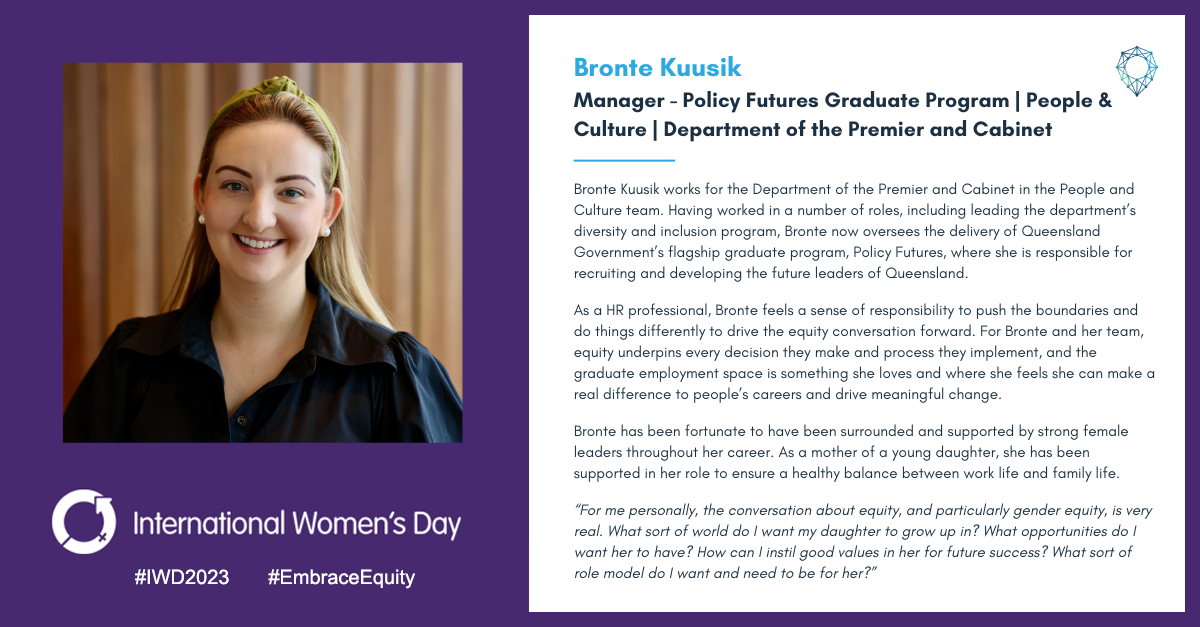
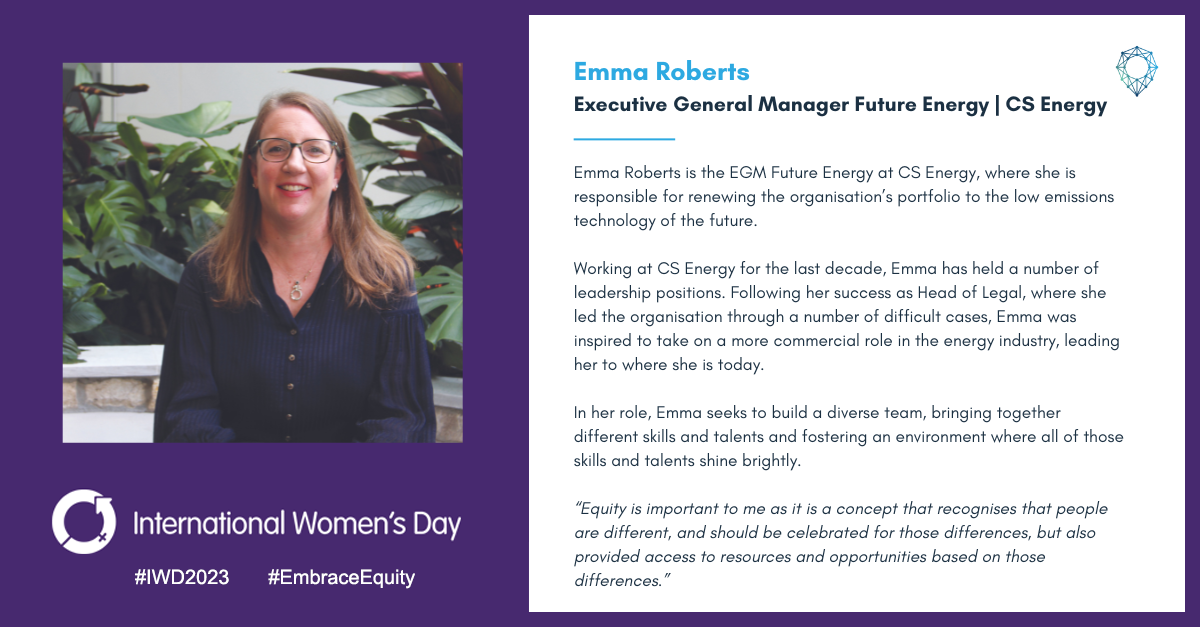

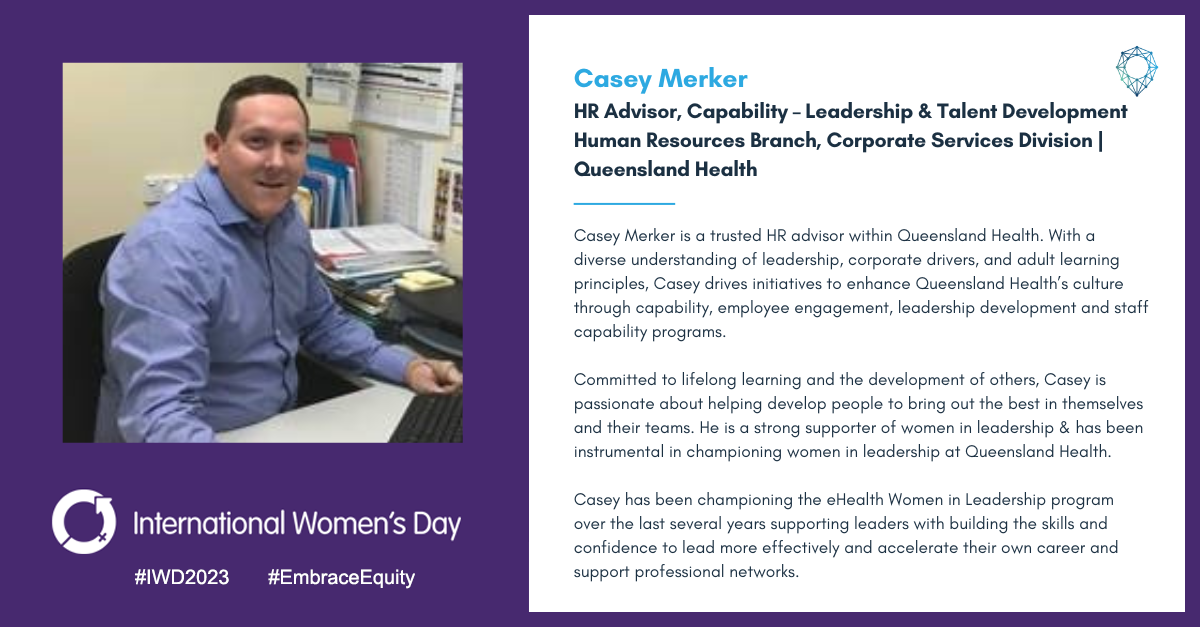

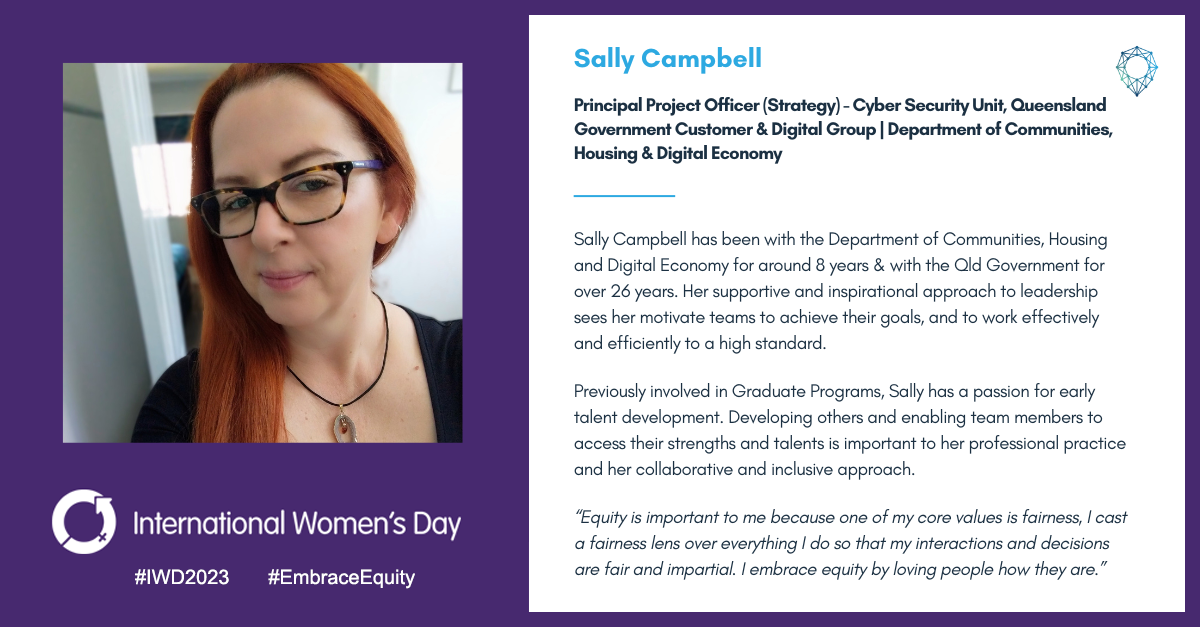

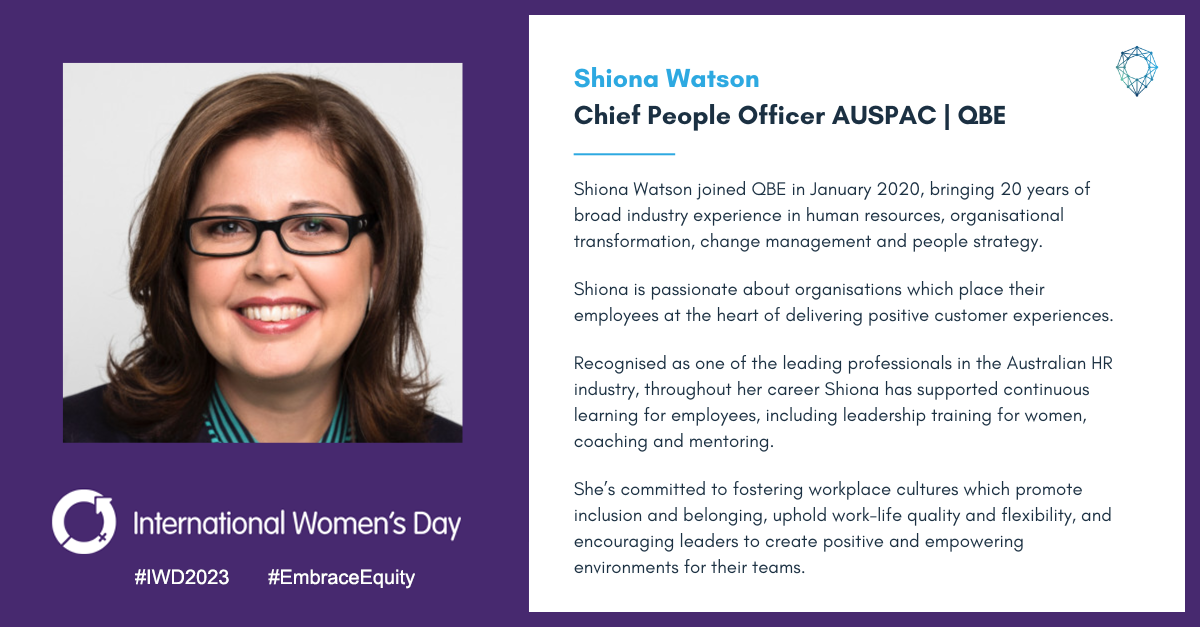




Connect with us...
Need help solving your people problems? Please contact us and a Mapien Workplace Strategist will be in touch within 24 hours to help find the solution.
A workplace investigation is a process that enables the resolution of workplace complaints by determining unknown or disputed facts and making findings in relation to inappropriate conduct. During this process an Investigator must be mindful that some interviewees may have been subject to trauma.
What is Trauma and How Does It Affect Memory?
Trauma is essentially a person’s emotional response to a distressing experience. Trauma can arise from incidents such as workplace violence, workplace bullying, sexual harassment or assault and workplace accidents. However, not every person who experiences a distressing event will experience trauma.
A person who has experienced trauma tends to be unable to accurately provide specific details about the event and when asked to do so often inadvertently provides inaccurate information and details. This is because trauma affects a person’s memory. During a traumatic event, the prefrontal cortex of the brain frequently shuts down leaving the less primitive parts of the brain to experience and record the event. A person who has experienced trauma may also withdraw mentally during an interview to focus on incidental details such as an object in the room or a sound in the distance.
These observations about trauma and memory would normally lead an Investigator to make adverse assumptions about credibility. It also presents a challenge when trying to ascertain the complaint details. This is particularly the case as traumatized people tend to present for interview in a highly agitated or emotionally unpredictable state and may need several breaks.

Trauma-Informed Approach
In these circumstances, it is important that an Investigator adopts a ‘trauma-informed approach’ to the workplace investigation process.
A trauma-Informed approach means the Investigator is:
- able to identify trauma; and
- acknowledges that one or more participants involved in the investigation may be experiencing trauma unrelated to the present matter.
Once trauma is recognised, the Investigator will need to adapt the interview so as to mitigate re-traumatising or triggering the interviewee. Essentially, the goal of the investigator is to obtain the maximum amount of information without causing the interviewee unnecessary stress.
There are three parts to the interview process.
A. Prior to Asking Questions
A trauma-informed approach starts prior to asking any questions. Rapport is important regardless of who is being interviewed. However, for a traumatised interviewee it is vital. The investigator should spend time introducing themselves, find out more about the interviewee and explain the Investigator’s role.
A traumatised interviewee will need to feel safe so the interview should be conducted in a comfortable, quiet and private space with water and tissues available. The interviewee should have already been allowed a support person. Traumatised interviewees are concerned about giving up control so it is important to allow them to decide where to sit such as choosing one chair over another.
Once the interview starts, the Investigator needs to be able to recognise the signs of trauma. This includes a lack of focus, fragmented or inconsistent memories, memory gaps, nervousness, confusion, disorientation, exhaustion, anxiety and blunt effect which is where a person shows almost no emotion.
Interviewees who are very anxious or stressed may feel compelled to use their hands and will benefit from scribbling on a piece of paper or using a fidget spinner. Such items should be made available.
Offering a drink of water to a person recalling trauma can be helpful as it has several beneficial aspects. Firstly, there is the caring aspect which can help build rapport. Secondly, the act of drinking requires a person to breathe which is inherently calming.
Demonstrating empathy is important. However, this can be difficult in front of an emotional interviewee as the Investigator needs to avoid the appearance of being bias. Statements such as “I can see this is hard for you to talk about” is a way to show empathy by recognising the difficulty with the complaint process without acknowledging that the incident took place.
B. Trauma Informed Questions
As trauma can significantly impact a person’s memory, it is appropriate to focus on what the interviewee is able to recall. For instance, instead of beginning with “Start from the beginning” it is preferable to say “Start where you feel comfortable,” or “Tell me what you remember.” This allows the interviewee more control over how the narrative unfolds and minimises contaminating fragile memories.
Standard questions such as “What happened next?” can be counter-productive for a traumatised person as nonchronological recollections can derive from a trauma situation. Questions such as “What else happened?” or “What else do you remember?” can be more productive when trauma is present.
Avoid using legal terminology that may have a negative impact and discourage a person from reporting or pursuing a complaint by making them feel they are over-reacting or ‘making a fuss’. For example, during an interview do not refer to a person who has made a sexual harassment complaint as ‘the complainant’. Further, do not refer to them as ‘the victim’ as this has a disempowering effect.
Establishing a chronology is important. The use of electronic data or documentary evidence can determine when incidents occurred thereby making the Investigator less reliant on the interviewee’s memory. For example, text messages, mobile phone logs and attendance sheets are useful sources of evidence to determine chronology.
During a traumatic event the primitive part of our brain records sensory information more effectively than cognitive facts. Therefore, questions about sense memories such as sounds, smells, sights and touch can enable an interviewee to recall significantly more information.
Once the interviewee has provided their account, the Investigator can then ask follow-up questions for clarification and attempt to fill in gaps in their evidence. The Investigator must still apply a trauma-informed process by asking questions in a non-leading and sensitive manner that does not contaminate the interviewee’s recollections.
C. Closing the Interview
Merely speaking about traumatic experiences can trigger severe emotional reactions including nightmares or intrusive thoughts.
The Investigator can assist by:
- advising that the interviewee may have emotional reactions to having participated in the interview and to be prepared for these feelings;
- showing empathy while still using language appropriate to the neutral process;
- thank the interviewee for their cooperation;
- acknowledge that these are difficult topics to speak about;
- where the organisation has an Employee Assistance Program or other support/counselling service, then this should be made known to the interviewee.

Take home points
The use of a trauma-informed approach to workplace investigations is necessary when interviewing people that have experienced trauma. Trauma may be experienced from a range of distressing events. When conducting interviews, the Investigator must be mindful of the effects that trauma has on a person’s memory and their ability to participate in the interview process.
Connect with us...
Mapien Workplace Strategists is a specialist people consultancy with extensive experience conducting workplace investigations of sensitive matters. If you would like to know more about a trauma-informed approach to workplace investigations, please contact us and a Mapien Workplace Strategist will be in touch within 24 hours.
Coming Soon…. Webinar
Further to this topic, our Mapien team will be hosting a webinar discussing Trauma-Informed Approach to Workplace Investigations.
Stay tuned for dates and webinar invitation!


